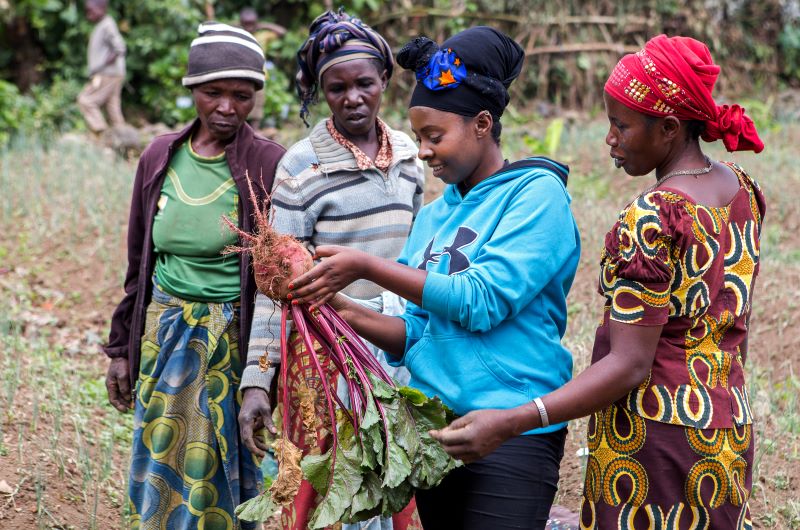Comment: The World Bank and IMF have a big part to play in raising the $3 trillion needed to help countries meet global development goals and the Paris accord
Wanjira Mathai is managing director for Africa and global partnerships at the World Resources Institute and ambassador for the Food and Land Use Coalition. Jamie Drummond leads Sharing Strategies and is co-founder of the ONE Campaign.
Set against the global backdrop of poverty, hunger, climate change, debt and conflict, it can feel hard to be hopeful at present. But there is a real win-win opportunity – as well as a deep moral obligation – to heal geopolitical divisions, foster peace, alleviate poverty, ensure food and nutrition security, address the climate crisis, and deliver a better, fairer future for people and planet. It lies in the reforms of the global financial architecture necessary to deliver the additional sum of at least $3 trillion required to support countries to meet the Sustainable Development Goals and the Paris Agreement on climate change.
Last year’s international meetings in Paris and Nairobi – leading to the Paris Pact for People and Planet, and the Nairobi Declaration – have made the case for debt relief, enhanced international taxation and global financial architecture reform. These reforms will be centre-stage at next week’s Spring Meetings of the World Bank and the IMF in Washington DC.
Here the world must urgently come together to articulate and deliver a clear plan for how to end hunger and build resilient food systems, backed by real leadership, enhanced coordination, accountability and finance. The task at hand is to connect the global imperative to act on food security, sustainable agriculture and malnutrition with the broader efforts underway to drive a reform agenda and to replenish the World Bank’s concessional lending arm, the International Development Association (IDA).
At UN climate talks in Dubai last year, 159 world leaders committed themselves to action on food security and climate change by signing the COP28 Emirates Declaration on Sustainable Agriculture, Resilient Food Systems, and Climate Action – the first of its kind. The commitments in this declaration now need to be linked with the emerging global plan for increased finance.
Is water provision in drought-hit Zambia climate ‘loss and damage’ or adaptation?
African potential
Africa is ground zero for the climate crisis, but is also the continent where solutions will have the most impact. Of the 9.8 billion people expected to live on the planet by 2050, a quarter will be African. Financial reforms must unlock climate-positive green industrialization and transform food systems across the continent in a way that is compatible with sustainable and inclusive economic growth. But the ultimate test will be whether the funds released reach the communities who need them most, when they need them, producing the desired results of ending poverty, building climate-resilient infrastructure, saving nature and biodiversity from extinction, and delivering prosperous lives for all.
This goal is within our reach – with evidence and farmers’ testimonials showing the success of innovative models such as the Arcos community-led scheme in Rwanda, which has empowered smallholder farmers to preserve and restore forests and agricultural landscapes. To date, 12,000 community members have grown 4.2 million trees, including fruit trees for boosting income and nutrition, nitrogen-fixing species to improve soil health, fodder species for livestock and indigenous species for biodiversity, on more than 20,000 hectares. The farmers h
Read More







Never miss a story. Join us on social.